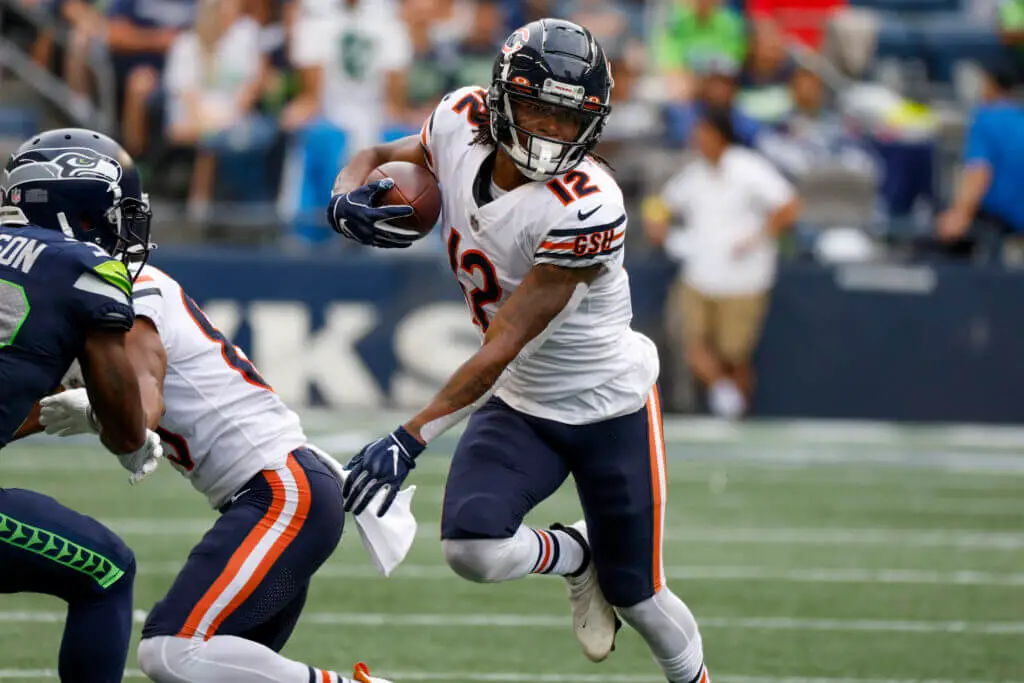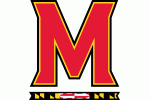- Joined:
- Sep 15, 2012
- Posts:
- 65,282
- Liked Posts:
- 41,964
Jaylon Johnson admitted he didn’t buy in right away to Eberflus’ philosophy predicated on hustle and intensity.
“It was just something that I wasn’t familiar with, something I wasn’t used to doing, so naturally there’s going to be some back-and-forth,” he said. “But really coming in, being in it, going through it during the spring, and now, like I said, it’s becoming second nature. It is what it is. It’s the standard, and as a leader I have to push myself to push other guys, to uphold that standard. I’m definitely used to it now. It’s natural. It’s what the expectation is.”
Johnson said that they joke about having a Shakespeare quote, “Thou who runneth to the ball, good things shall happen.”
The “running to the ball” element of Eberflus’ system is what Johnson is seeing in practice and games, and he gets the benefits of it.
“You’ve seen how we finished the play when Khyiris Tonga got the interception, just like things like that, like nobody would have ran all the way to the end zone … finishing,” he said. “Like as fun as that seems, that’s a lot of energy to do. But it’s just like that muscle memory of catch the ball and run. Everything that we’re doing is ball here, run. Ball here, run. Everything we’re doing is just running to the ball. I mean, that quote’s kind of funny, but it’s real when you really run to the ball, you can get tipped a pass, you can get a fumble because you can never know what can really go on in a game.”
The most obvious example of the impact of “HITS”— Hustle, Intensity, Takeaways and (playing) Smart — is on Johnson’s conditioning.
“I mean it definitely made me more in shape, all the running that we’re doing, for sure,” he said. “So my endurance is more advanced than it was in previous years.”
Center Sam Mustipher is always one to “run to the ball” and “finish” plays. He’s made his NFL career on work ethic. But even he was docked for a loaf in the preseason opener.
“I’m a guy who prides myself on going to pick up the ball carrier, but I had loafs on the sheet,” he said. “That’s something I’m not used to. I went back throughout the week, like, ‘Shoot, I got to practice harder.’ Because if you don’t practice hard, you’re not going to be able to do it in the game.”
Mustipher said there was a checkdown to Herbert that went out of bounce and he “jogged like four steps,” which counted as a loaf.
“A great example of the HITS principle is that first play (in Seattle), the tight end screen to Cole Kmet,” Mustipher said. “When Cole is on the ground, there’s nothing but white jerseys around him. That’s the HITS principle. How that comes to fruition, now Cole knows, ‘No matter where I am on the field, all my guys are going to be there for me. So I can run harder, I can fight for those extra yards.’ It’s cool things like that. To see it come to fruition is nice.”

 theathletic.com
theathletic.com
“It was just something that I wasn’t familiar with, something I wasn’t used to doing, so naturally there’s going to be some back-and-forth,” he said. “But really coming in, being in it, going through it during the spring, and now, like I said, it’s becoming second nature. It is what it is. It’s the standard, and as a leader I have to push myself to push other guys, to uphold that standard. I’m definitely used to it now. It’s natural. It’s what the expectation is.”
Johnson said that they joke about having a Shakespeare quote, “Thou who runneth to the ball, good things shall happen.”
The “running to the ball” element of Eberflus’ system is what Johnson is seeing in practice and games, and he gets the benefits of it.
“You’ve seen how we finished the play when Khyiris Tonga got the interception, just like things like that, like nobody would have ran all the way to the end zone … finishing,” he said. “Like as fun as that seems, that’s a lot of energy to do. But it’s just like that muscle memory of catch the ball and run. Everything that we’re doing is ball here, run. Ball here, run. Everything we’re doing is just running to the ball. I mean, that quote’s kind of funny, but it’s real when you really run to the ball, you can get tipped a pass, you can get a fumble because you can never know what can really go on in a game.”
The most obvious example of the impact of “HITS”— Hustle, Intensity, Takeaways and (playing) Smart — is on Johnson’s conditioning.
“I mean it definitely made me more in shape, all the running that we’re doing, for sure,” he said. “So my endurance is more advanced than it was in previous years.”
Center Sam Mustipher is always one to “run to the ball” and “finish” plays. He’s made his NFL career on work ethic. But even he was docked for a loaf in the preseason opener.
“I’m a guy who prides myself on going to pick up the ball carrier, but I had loafs on the sheet,” he said. “That’s something I’m not used to. I went back throughout the week, like, ‘Shoot, I got to practice harder.’ Because if you don’t practice hard, you’re not going to be able to do it in the game.”
Mustipher said there was a checkdown to Herbert that went out of bounce and he “jogged like four steps,” which counted as a loaf.
“A great example of the HITS principle is that first play (in Seattle), the tight end screen to Cole Kmet,” Mustipher said. “When Cole is on the ground, there’s nothing but white jerseys around him. That’s the HITS principle. How that comes to fruition, now Cole knows, ‘No matter where I am on the field, all my guys are going to be there for me. So I can run harder, I can fight for those extra yards.’ It’s cool things like that. To see it come to fruition is nice.”

Bears notes: Starters to play on Saturday, Roquan Smith's big play and seeing 'HITS'
The Bears began preparation for the Browns like it's a regular-season game week, and Roquan Smith started practice with quite the "thud."











